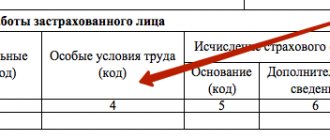The Constitution of the Russian Federation states that a citizen has the right to work. Therefore, employment is provided for a 3rd degree disabled person who received the status from childhood or adulthood. This is connected not only with earnings, but also with the citizen’s ability to social life.
However, for disability group 3 there are work restrictions. An employer can refuse a citizen a job, but only on legal grounds. Otherwise, benefits apply. When employed, a person acquires new rights, as does the employer.
Working hours and other working preferences for disabled people of groups 2 and 3
Group 3 disabled people are generally not given a shortened working day or week. Like all other workers, they will have to work 40 hours weekly.
But if the medical report drawn up by the ITU contains restrictions regarding the need to shorten the shift, then the employer is obliged to do this (Article 11 and 23 of Federal Law No. 181, Article 95 and 224 of the Labor Code of the Russian Federation).
Articles on the topic (click to view)
- What to do and where to go if you are not paid upon dismissal
- What to do if you are laid off at work
- What to do if the employer does not want to fire at his own request
- What to do if the date of the dismissal order is later than the date of dismissal
- What to do if the employer does not give the work book after dismissal
- What to do if you didn’t work officially, you were fired, you didn’t get paid
- What is the employer obliged to give the employee on the day of dismissal?
If a citizen has been assigned a group 2 disability, he must work no more than 35 hours weekly - as stated in Article 92 (Part 1) of the Labor Code of the Russian Federation. And the permissible length of the working day is established by doctors in the certificate of disability.
In addition, the employer must take into account other rights of employees with disabilities (II or III groups):
- An annual vacation period of at least 30 days (Article 23 of Federal Law No. 181) must be paid at the expense of the employer;
- A disabled person has the right to leave at his own expense (for personal/family reasons) - up to 60 days per year;
- According to the laws of the Russian Federation, an employee with disabilities cannot be called up for overtime and night work against his will (reflected in Articles 96, 99 and 113 of the Labor Code), and with his consent, the document should be drawn up in simple written form. The employee's signature is required.
Important. If a disabled person was sent to a place of employment from the employment center (employment center) against a quota, then the employer does not have the right not to accept him.
Citizens with disabilities also have the right to tax breaks:
- When leaving an enterprise due to staff reduction, the amount of severance pay is not taxed (Article 217, Part 3 of the Tax Code);
- If a disabled person took part in work to neutralize the consequences at the Chernobyl nuclear power plant or during the Second World War, then, according to Article 218 of the Tax Code, he is entitled to a tax deduction of 3 thousand rubles.
How is this right granted?
There are a number of nuances when drawing up employment contracts with disabled people. When drawing up the text of the agreement, it is necessary to stipulate the following points:
- About the peculiarities of vacations;
- About the duration of the shift and the working week;
- A clause prohibiting calling for additional (overtime) work without the handwritten consent of a disabled person;
- If the individual rehabilitation program (IRP) contains notes about special working conditions that should be provided to the employee, then this must be indicated in detail (Article 23 of Federal Law No. 181);
- Please note that if an employee with a disability works part-time, he should be paid in full.
Reference. It should be understood that disabled people II and III gr. can be hired just like any other person. There are no articles in the laws obliging applicants to notify the employer about their illnesses, and the IPR is only a recommendation for the beneficiary.
When applying for a job, if an employee wants to receive all the benefits that are due, he must bring:
Copies of these documents must be in the employee’s personal file; they confirm the benefits and work schedule of disabled people of groups 1-3.
Does the shortened working week apply to disabled people in the first group?
Expert opinion
Polyakov Pyotr Borisovich
Lawyer with 6 years of experience. Specialization: civil law. More than 3 years of experience in drafting contracts.
Employees with disabilities in group I have the right to a shortened working week (up to 35 days). And the duration of one shift is also established by the rehabilitation program.
Does a disabled person have the right to demand a change in work schedule?
There are no provisions in the law according to which an employee would be able to unilaterally change his work schedule.
This may be based on:
- Requirements of an individual recovery program (IRP) when applying for a job;
- Mutual agreement with the heads of enterprises.
If an employee has become of limited capacity while already working in this organization, then, if there are recommendations from medical workers, he has the right to adjust the length of the working day and work schedule: to allocate time for the necessary medical examinations and treatment procedures. This should be reflected in the IPR.
Features of Article 99 of the Labor Code of the Russian Federation on the work of persons with disabilities
The document talks about overtime work. At the same time, it is strictly forbidden to attract employees of groups 1, 2 and 3 with limited legal capacity if they have not written a statement of their consent.
The employer is also obliged to familiarize the disabled employee with his legal rights (to refuse unplanned work) against the latter’s personal signature.
This is important to know: What documents are needed for the exchange after dismissal
It is strictly forbidden to use an employee’s labor if the upcoming activity may worsen his physical condition. The list of restrictions must be indicated in the IPR.
Working hours for a disabled person of the 2nd group
Hello, dear Olga Valerievna, regarding the essence of the question you asked, I can briefly explain the following: Your employer has no legal grounds to fire you and ask for it against your will. Don’t even think about resigning of your own free will; I repeat, your employer has no grounds and will not be able to legally fire you. If pressure is applied to you, contact the prosecutor's office at your place of residence.
We recommend reading: Salary for the probationary period in December 2021 for military personnel
A citizen recognized as disabled is issued a certificate confirming the fact of disability, as well as an individual rehabilitation program. In accordance with Art. 224 Labor Code of the Russian Federation and Art. 11 of Federal Law No. 181 - Federal Law, the individual rehabilitation program for a disabled person (IRP) is mandatory for implementation by the organization, regardless of its legal form and form of ownership. However, a disabled person has the right to refuse to implement the IRP, both in part and in whole. In this case, in accordance with Part 7 of Article 11 of Law No. 181-FZ, the organization is exempt from responsibility for the implementation of the IPR of a disabled employee.
Features of calculation: how the salary of a disabled person is calculated
According to the Labor Code of the Russian Federation, the salary of a partially capable employee cannot be less than 1 minimum wage for the established number of hours per month (Article 133).
With a reduced schedule
It does not matter how many hours a disabled person works per week:
- 40 hours, as holders of III class;
- 35 hours as disabled people I and II.
In any case, he has the right to full payment for his work, which any other employee in his place would receive. That is, a shortened working week should not affect the salary of a disabled person.
Any work that goes beyond 35 hours/week (for the first and second groups) is overtime and is paid separately - in accordance with the Labor Code.
With a shift schedule
If the enterprise has established a shift work schedule, then difficulties may arise: long-term activities are often contraindicated for disabled people of groups 1 and 2. Therefore, the management of the enterprise is forced to introduce individual work schedules. In accordance with them, wages will be calculated.
If an employee has a group 3 disability, then he can work on a general basis (in the absence of medical contraindications).
Transfers to state funds for group III. Example
- 22% - to the Pension Fund;
- 2.9% – to the account of the Social Insurance Fund;
- 5.1 – to the Compulsory Health Insurance Fund.
Plus, income tax will be deducted from the employee.
Note. Employees with more severe illnesses (grades I-III) will receive slightly higher payments - thanks to proper tax deductions.
List of diseases of group 3
The legislation strictly defines the types of pathological disorders in the human body, as a result of which he is assigned the third group of disability. These include:
- speech disorders;
- hearing impairment;
- problems in the musculoskeletal system;
- memory impairment and limited intelligence;
- serious problems with internal organs;
- serious abnormalities in the circulatory and endocrine systems;
- defects in the human anatomical structure.
This list has been slightly modified for 2021. In order to receive group 3 disability, you must undergo a social medical examination.
To undergo it, you need to submit an application or receive a referral from a clinic or hospital. Medical examination is carried out by special bureaus. To pass it you need to submit the following documents:
- Passport or birth certificate.
- Insurance policy.
- SNILS.
- Application or referral for a medical examination.
The application has a certain prescribed form. It must be filled out in accordance with the requirements of Russian legislation. Filling procedure:
- The medical bureau to which this document is submitted is indicated.
- Personal data of the applicant.
- SNILS data.
- Passport details with registration.
- Request for an examination.
- Signing a document of consent to the processing of personal data.
- Date and signature.
Based on this application and receipt of the necessary documents, a date for the examination is set.
Disabled people of the third group have a particularly difficult time in the modern world. This is due to the fact that, despite their physical condition, many are forced not to submit documents about their condition to the employer in order to find a good job. But it is currently impossible to live on disability benefits alone.
Questions regarding working hours for disabled people
Expert opinion
Polyakov Pyotr Borisovich
Lawyer with 6 years of experience. Specialization: civil law. More than 3 years of experience in drafting contracts.
Question . The employee presented documents on disability group III, which were issued 8 months ago. A new employment contract was concluded that took into account the rehabilitation program. Do I need to recalculate for the past 8 months?
No, since the employer is obliged to comply with the law on the basis of documents, in this case the management did not know about the employee’s health condition, therefore compensation for vacation, work week and other benefits is not required.
Question . A disabled employee has a shorter working day (at the insistence of doctors). This is also indicated in the IPR. Should he reduce his shift by 1 hour before a public holiday?
Yes, this is necessary - according to Article 95 of the Labor Code. That is, the shortened working day should be reduced again.
Question . An employee with a disability works part-time – 4 hours. The company needs him to work in the afternoon, but he does not agree. The employment contract did not specify details of the distribution of working hours and work schedule. Is it possible to oblige an employee to work at a time convenient for the employer?
If the IPR clearly defines time limits for carrying out work activities, then the employee is right and can insist on the schedule recommended to him by doctors. If there are no such instructions in the plan, it is necessary to solve the problem by agreement of the parties.
Question . An employee with a disability wrote an application for leave at his own expense. But due to production needs, it is impossible to release him at this particular period of time. Is it possible to reschedule days?
According to the law of the Russian Federation, a disabled worker has the right to leave without pay for up to 60 days a year. But there is no guidance on the timing of this rest period for the employee. Therefore, you need to come to a mutually beneficial agreement.
Question . An applicant from grade III came for an interview; the rehabilitation program contains information about limiting the amount of working time by 1/3. How should an employment contract be concluded if the vacancy requires 2/2 12-hour shifts?
Working conditions
The “Sanitary Rules” provide for working conditions for citizens with disabilities. Persons with a similar status cannot work:
- at high or low temperatures, noise or poor lighting;
- with electromagnetic radiation, static electricity;
- with increased gas pollution, air pollution with dust;
- in the presence of pathogenic microorganisms in the air;
- if the work involves prolonged physical activity, or the workplace is inconveniently equipped;
- if work activity involves excessive psychological stress (monotonous work, night shifts, irregular working hours).
Also, work should not cause aggravation of the disabled person’s well-being or provoke the development of any pathologies.
Guarantees and benefits
Disabled people have the right to receive certain benefits and guarantees:
- Possibility to take 60 days of vacation without pay. But all days must be taken off during the current year. The remaining days will not be rescheduled.
- They have an advantage during contraction. If the employee has received a disability due to direct work duties. And it wasn't his fault.
- In the event that an employee has been injured and his disability has not yet been established, he is required to be given a different place of work or position, with the condition that he will be able to cope with new responsibilities without harming his health.
- Distribution of jobs in accordance with Article 21 of the Federal Law.
- Prohibition on receiving an unjustified refusal when applying for a job that is related to the category.
Working conditions for disabled people with group 3
Within the framework of labor regulations, it is prohibited to set working conditions that could worsen the position of a disabled person or humiliate his dignity. Moreover, for employees with groups 1 and 2, a relaxation is established in the form of a shortened working week.
As for those in the third category, not everyone will be able to reduce the number of working hours.
| Legislative justification | ||
| Bill No. | Name, date of adoption | Issues that are regulated |
| 181 | Federal Law of November 24, 1995 – “On Social Security” | Specifies the length of the work week |
| Establishes a ban on engagement in overtime shifts | ||
| Determines the duration of the vacation | ||
| 197 | TK, dated December 30, 2001 | Talks about overtime shifts for beneficiaries |
| Discusses the specifics of employment | ||
| 92-G11-1 | Judicial ruling of the highest authority dated May 11, 2011 | Establishes quotas for the employment of limited persons |
| 379-n | Order of the Ministry of Health that dated July 4, 2017 | Talks about restrictions when a disabled person performs work functions |
Documents that an applicant must have when applying for employment:
- Passport.
- Statement.
- Labor book.
- Medical policy.
- Other documents required by the company when hiring for a specific position.
- Documents confirming diseases, injuries of the body and restrictions caused by them (at the request of the party):
- ITU conclusion;
- IRP (individual rehabilitation plan).
An employer does not have the right to demand a medical report from an employee. An applicant who wishes to receive the required labor benefits and concessions must himself inform about the fact that he has a limitation.
How do people with disabilities find employment?
The applicant provides the employer with the following documents:
- Passport.
- Employment history.
- A document confirming the assignment of the status of a disabled person of the 3rd group.
- IPR, which contains the doctor’s recommendations.
- Statement.
The employer must review the documents and determine whether the conditions it can provide meet the legal requirements for the employment of persons with disabilities.
The employer will have to pay a fine of 2000-3000 rubles for refusing to hire a disabled person. An exception is an ITU document confirming the applicant’s disability or contraindications to this type of activity.
The applicant, at his own request, presents a certificate of disability. If he does not attach a document to the application, the employer is not obliged to provide him with any benefits. In such a situation, a disabled person is treated as an able-bodied worker.
Features of calculating earnings
Our readers will be interested to know how the salary of a disabled person is calculated. For an applicant with the third group, the salary is calculated on a general basis if he has a standard working week.
With a reduced schedule
If it is necessary to reduce the work week to 35 hours, payment to a disabled person of group 3 is made in proportion to the time worked. While holders of 1.2 are given standard, full pay (as for a full shift).
With a shift schedule
Rarely can a person with disabilities be hired to work a full shift. Since the applicant requires an individual schedule, payment is made based on the number of hours worked.
When working remotely
An employee’s remuneration for remote work is made in proportion to the time worked.
We remind you! You can have your situation assessed by a lawyer - it's free! Call!
Re-examination of disability
According to the law, disabled people of group 3 are required to undergo annual re-examination in order to re-determine their health status. Based on the results of the commission, specialists can assign a person a higher degree of restrictions or cancel a certificate of health problems.
The attending physician must inform about the place and timing of the re-commission. The examination date cannot be missed, otherwise the patient may lose his privileges and special rights. 5 days before the date of the examination, you must contact the bureau of medical and social examination and provide a package of documents, as well as check the date of the examination. The package of papers should be as follows:
- SNILS;
- identification;
- income certificate;
- referral from the attending physician;
- YPRES;
- outpatient card;
- characteristics from the place of employment and study;
- certificate of disabled person status;
- epicrisis based on the results of at least 4 visits to the doctor over the past year.
It is possible to conduct an examination at home if a group 3 disabled person cannot visit the office. To undergo a home inspection, you must submit an application to your doctor. Early examination is also practiced, which is carried out no earlier than 2 months before the certificate expires. It is performed if the patient’s condition has deteriorated sharply and there is a possibility of transfer to a non-working group.
Persons with disabilities can work similarly to healthy citizens. In the absence of special prohibitions, a disabled person can completely hide his condition by not providing the relevant documents to the employer.
Benefits for working disabled people
In addition to an individual schedule, applicants are guaranteed some other privileges at work. Let's look at the main types of concessions:
- creation of special conditions (re-equipment of the site, acquisition of technical equipment) to fulfill the conditions of the IRP;
- 30 days paid vacation;
- shortened shift (if indicated in the IPR);
- involvement in overtime activities and business trips only with the consent of the employee;
- prohibition on engaging in dangerous, complex activities;
- the ability to perform the necessary rehabilitation and health procedures outside of lunchtime.
For reference!
The holder of group 3 with Chernobyl status is entitled to an additional 14 days of paid rest.
How many hours do you need to work
A group 3 disabled person will work 40 hours a week, this is the standard work schedule. While the week of a disabled person of group 1-2 cannot last more than 35 hours. If unable to work a full shift or week, the employee may request a change in schedule or transfer to another position.
In the Labor Code of the Russian Federation, parts of Art. 95, 224 and Federal Law No. 181 speak of the possibility of reducing the shift, week, of the holder of group 3, if he has the appropriate indications.
Does group 3 belong to the working age category?
When people become disabled, they get lost. Therefore, it is worth knowing whether a group 3 disabled person is required to work? To begin with, the degree is awarded to citizens with chronic diseases and cancer. Impaired body function occurs due to injury or congenital pathologies. Diseases provoke limitations in a person’s ability to work. Therefore, social protection for disabled people is required.
So working group 3 or not? Disability of this degree belongs to the working category. Limitations in life activities do not affect lifestyle. Therefore, a citizen is able to perform labor duties, but with minor restrictions. A disabled person may be denied employment if the work or position is contraindicated for health reasons. A citizen is able to carry out labor activities, but also has the right not to get a job. However, a disabled person may have a category - part-time work, part-time or shift work.
Work restrictions
If there is a 3rd disability group, the applicant must have an IRP in hand. This document is developed for each applicant who has received official medical recognition of a disability. There is no single list of prohibitions prescribed by law. They are established by the commission individually, taking into account the patient’s condition, the specifics of his activities and living conditions.
List of diseases
- neuropsychiatric disorders;
- disturbances in the functionality of internal organs and systems;
- disease of the eyes and ears.
Important!
The indicative list of ailments and conditions that give the right to establish group 3 contains government decree number 1024-n (appendix to it) dated December 17, 2015.
Popular questions on the topic
Question
: Can an employer refuse to transfer an employee (group 3) to a shortened work shift if there are recommendations in the IRP?
Answer
: If the reduction of the work shift does not negatively affect the operation of the enterprise as a whole, then the employer has no right to refuse the request. If, for example, a car mechanic must be on a 12-hour shift, since cars in the fleet can break down at any time, then he may be denied a transfer. The absence of an employee can cause disruption throughout the entire enterprise.
Question
: If disability was established six months ago, but the applicant submitted documents to the company late, is it necessary to somehow compensate for the benefits he missed at work?
Answer
: The company undertakes to provide benefits only after concluding an employment contract, taking into account a new circumstance, namely the employee’s disability. There is no need to do any recalculation.
Expert opinion
Polyakov Pyotr Borisovich
Lawyer with 6 years of experience. Specialization: civil law. More than 3 years of experience in drafting contracts.
Question
: An employee with group 3 has indications for reducing the working day by 1 hour. Is it necessary to reduce the length of his working day before public holidays?
Answer
: Yes, the law establishes a uniform exemption for all employees, which should also be provided to disabled people. Otherwise, the situation can be incriminated as an infringement of his rights.
What is the work schedule for a group 3 disabled person?
The Labor Code of the Russian Federation talks about how long citizens with disabilities are allowed to work. As for working hours, the labor code sets a limit of 35 hours per week. Important! A disabled person can work full time if he gives written consent, but the company must additionally pay for his work. In addition, on the initiative of the manager, a citizen of the third or other disability group cannot be recruited to work at night. If the employee agrees, he will be able to work after 10 pm. The same is true in the case of overtime work: it is permissible only with the consent of the disabled person. Read also About the length of working hours for women in rural areas Taking into account the characteristics of a person, the employer must create conditions that will allow him to fully fulfill his duties.
Obtaining 3rd disability group by an existing employee
It happens that an employee already working in an organization gets sick and as a result receives group 3 disability. This circumstance must be documented by personnel employees after the employee has provided the relevant medical documents. Unilateral changes to an employment contract are not permitted by law. Therefore, an additional agreement must be concluded, which indicates newly discovered circumstances (Article 72 of the Labor Code of the Russian Federation). If medical recommendations prescribe certain working conditions, then the employee must be employed in compliance with them.
Read more about the quota for disabled people in the organization at the link https://otdelkadrov.online/4308-pravila-otchetnost-po-vydeleniyu-kvoty-na-invalidov-v-organizatsii
If an employee does not agree to switch to more benign working conditions, he has the right to resign of his own free will.
Watch the video about the problems of employing people with disabilities
Nuances of the working day of a disabled person, benefits and guarantees
However, before studying them in more detail, you should consider the basic concepts: Disabled person A disabled citizen of the Russian Federation who has limited capabilities due to a congenital or acquired disease; Salary; a reward that is provided by a manager to an employee for hours worked or the completion of a specific task assigned to him; Citizen Russian Federation A subject of the state who has the right to count on certain rights and protections provided at the legislative level Benefits and privileges Incentives established by the state for a certain category of the population who are legally entitled to assistance from state municipal authorities Taking these concepts into account, it will become much easier to familiarize yourself with the payment rules labor for disabled people in the Russian Federation.
Features of employment
Our country prohibits discrimination in employment. This means that a refusal to hire cannot be motivated by a person’s disability if he is able to perform the proposed job.
Employment of disabled people is provided by the state:
- quotas have been established for employers: companies are required to hire citizens with disabilities; the number of quotas ranges from 2 to 4% of the total number of employees of the organization;
- special workplaces are organized for people with disabilities;
- entrepreneurs with disabilities are provided with preferential tax treatment;
- Free training of citizens in new specialties is provided.
Nuances of remuneration for disabled people (different groups 1,2,3)
Legislative framework (Labor Code of the Russian Federation) Regulation of issues regarding wages for disabled people is based on the following regulatory legal acts of the Russian Federation:
- Federal Law No. 181 of November 24, 1995 “On the social protection of disabled people in the Russian Federation”;
- Federal Law No. 143 of November 15, 1997 “On acts of civil status of citizens of the Russian Federation”;
- Federal Law No. 195 of December 10, 1995 “On the fundamentals of social services for the population of the Russian Federation”;
- Federal Law No. 178 of July 17, 1999 “On State Social Assistance”;
- Labor Code of the Russian Federation, article No. 133;
- Labor Code of the Russian Federation, article No. 92.
Based on these laws, a minimum wage level is established for disabled workers, which must be paid proportionally in accordance with established rules.
Rules for remuneration of disabled people in 2018
An employer does not have the right to assign an employee with disabilities to night shifts unless the latter has expressed his consent to this in writing, or when this is contrary to medical indications. On holidays, a disabled employee also has the right not to work on completely legal grounds. It is noteworthy that the legislation of the Russian Federation provides for special quotas for places for citizens with disabilities.
So, if an organization or enterprise employs more than 30 people, then the quota is subject to implementation. If the company employs less than 30 people, then hiring a disabled person remains the employer’s right, and not an obligation. If there is no quota, a management representative has the right to refuse employment on legal grounds.
List of restrictions
When a group 3 disability is registered, a special medical report from the social commission is required. The provided document specifies the working conditions for the employee. The disabled person must follow the recommendations provided, which include the following:
How much does a group 3 disabled person earn?
- If, in its conclusion, the social commission prescribed a reduction in working hours, then the employer provides a shortened work week.
- Working on weekends or exceeding the working hours is prescribed in the disabled person’s employment contract.
- The working week should not exceed 40 hours.
- A working disabled person is granted leave for 30 days.
- Hiring for a disabled person of group 3 is carried out without assigning a probationary period.
A disabled worker has the right to take a leave of more than 30 days. However, all days of rest beyond the prescribed month will not be paid. This is stipulated in the legislation of the Labor Code of the Russian Federation. A disabled person is allowed to carry out activities to restore health during working hours. This is prescribed in the medical report. When an employee is assigned a 3rd degree of disability, he needs to report this to the human resources department.
This is recorded in writing so that the employer is aware of the employee’s new rights and work restrictions. Then an additional agreement is signed with the employee. He is transferred to a new position or left in his original place if health conditions are met. Refusal at the initiative of the employer is not provided for by law. A disabled person can resign only of his own free will.
Benefits under labor legislation for disabled people of group III
According to the Labor Code of the Russian Federation, if the length of working time of a disabled person is specified in a medical report, the employer must establish a part-time working day (shift) or a part-time working week for such an employee within the limits established in the medical report. In this case, wages are set in proportion to the time worked or depending on the amount of work performed. At the same time, part-time work should not entail for the employee any restrictions on the duration of the annual basic paid leave, calculation of length of service and other labor rights.
Based on Art. 96, art. 99, art.
What mode of work is possible for a disabled person of group 3 (7 or 8 hours)
Question
What is the possible work schedule for a group 3 disabled person (7 or 8 hours)?
Answer
The legislation of the Russian Federation does not provide for a direct obligation of the employer to establish for disabled people of group III a reduced working time of no more than 35 hours per week while maintaining full wages.
Article 23 of the Federal Law of November 24, 1995 N 181-FZ “On the social protection of disabled people in the Russian Federation” for disabled people of groups I and II establishes a reduced working time of no more than 35 hours per week while maintaining full pay.
Art. 23, Federal Law of November 24, 1995 N 181-FZ (as amended on November 28, 2015) “On social protection of disabled people in the Russian Federation”
According to para. 4 hours 1 tbsp. 94 of the Labor Code of the Russian Federation, the maximum duration of the working week (shift) for disabled people is determined in accordance with a medical report issued in the manner established by federal laws and other regulatory legal acts of the Russian Federation. The procedure is established by Order of the Ministry of Health and Social Development of Russia dated May 2, 2012 N 441n “On approval of the Procedure for issuing certificates and medical reports by medical organizations.”
Is a shortened working week obligatory for disabled people of group 2?
At the same time, the duration of a disabled employee’s daily work or shift cannot exceed the time specified in the individual rehabilitation program, unless the employee himself refuses the specified recommendations (Article 94 of the Labor Code of the Russian Federation). Read more about disabled people here: In addition, when determining the duration of the daily work (shift) of a disabled employee, it is necessary to take into account the data of a medical report - an individual rehabilitation program for a disabled person (Part 1 of Article 94 of the Labor Code of the Russian Federation, Part 1 of Article 11 of the Law of November 24 1995 No. 181-FZ). Since the requirements of this program are mandatory for the employer, he is obliged to set the disabled employee the working day specified in the program.
Minimum wage In accordance with Article 133 of the Labor Code of the Russian Federation, the salary of each employee must be at least the minimum wage for the established monthly standard of hours; this rule applies to all workers, regardless of belonging to preferential categories, that is, disabled people of groups 1 and 2, even performing their duties in total 35 hours per week, cannot receive wages less than the established minimum amount.
How to reduce working hours for disabled people?
How long a person with a disability must work is determined by law. Reducing time spent at the workplace is possible only in accordance with a medical report provided in conjunction with the requirements of an individual rehabilitation program. The last document is of greater significance, since it is used by the manager to set the length of the working day.
Among the various options, there is usually a work week consisting of five days, 7 hours daily, with days off on Saturday and Sunday. That is, for a disabled person, from Monday to Friday, the time for work is one hour shorter.
If there are no restrictions on the length of the working day, the work schedule can be drawn up as follows: from Monday to Thursday for 8 hours, and on Friday only 3.
If there are no other requirements in the rehabilitation program, a week may consist of six working days and a day off. Moreover, from Monday to Friday working hours are 6 hours, and on Saturday - five.
Medical certificates that establish restrictions regarding a person’s capabilities are not particularly significant. The head of the enterprise mostly refers to the instructions that are defined in the individual rehabilitation program. The employer must strictly comply with this condition. Therefore, when establishing a shortened work schedule, he should not take into account the wishes of the employee.
How does the employment of a disabled person proceed?
When finding employment, a disabled person may not report the group and not provide a certificate with an IPR. But with this option, the working day will be standard, as for other employees, and preferential conditions will not come into force.
It also happens that the employer initially requests documents regarding the health status of the applicant for a job, then the presentation of the IPR is a mandatory condition. The fact is that an individual rehabilitation program (or IPR) includes clauses on working conditions, based on which the employer determines the possibilities of cooperation with a disabled person.
Still, experts advise not to hide the presence of a group in order to determine optimal working conditions. When applying for a job, in addition to the relevant application, it is better to attach an ITU conclusion to your passport and work book (men may need a military ID). If, after reviewing the documents, a group 3 disabled person is hired, the employer signs a decree.
Salaries are calculated according to the terms of the employment contract signed by the parties. Payments are made in accordance with this document or the subsistence level.
If an employee has a good reason for not changing his social status, he can take advantage of deductions and benefits after the next ITU examination. If the group is not re-registered, a change in status occurs, entailing the conclusion of an additional agreement specifying the changed labor conditions.
If at the next medical examination group 1 or 2 is assigned instead of the working group, the employer must create comfortable conditions for the employee, taking into account the recommendations from the expert opinion.
Salary with shortened working hours for disabled people
When applying for a job or subsequently, by agreement with the head of the company, a shortened working day may be established for the employee. The accrued salary in this case is determined by the actual time worked or the amount of work done. That is, according to the order for the enterprise, signed by the head of the organization, on the formation of a 7-hour work schedule instead of the required 8, payment will be accrued accordingly for the period worked (7 hours a day). Such rules also apply to employees with 2nd and 3rd disability groups.
Subsidies for organizations
Employment of disabled people has its limitations. Thus, a person with disabilities cannot work in the structures of the Ministry of Internal Affairs or the Ministry of Emergency Situations, in mines or glass melting shops, etc.
Hiring a partially able-bodied employee involves re-equipping the workplace taking into account the requirements of an individual rehabilitation program. In this case, the company can count on compensation for part of the costs in the form of subsidies.
The amount of financial assistance is proportional to the degree of disability:
- 100,000 rubles – for organizing a workplace for a person with 1st group of disability;
- 72,000 rubles – for equipping a work area for a category 2 disabled person;
- 65,000 rubles – if it is necessary to make changes to suit the characteristics of a person with health limitations of the 3rd degree.
Creating new jobs or carrying out global infrastructure changes is accompanied by significant costs. In this case, the employer should contact the municipal employment service, where he can receive half a million rubles as a subsidy.











